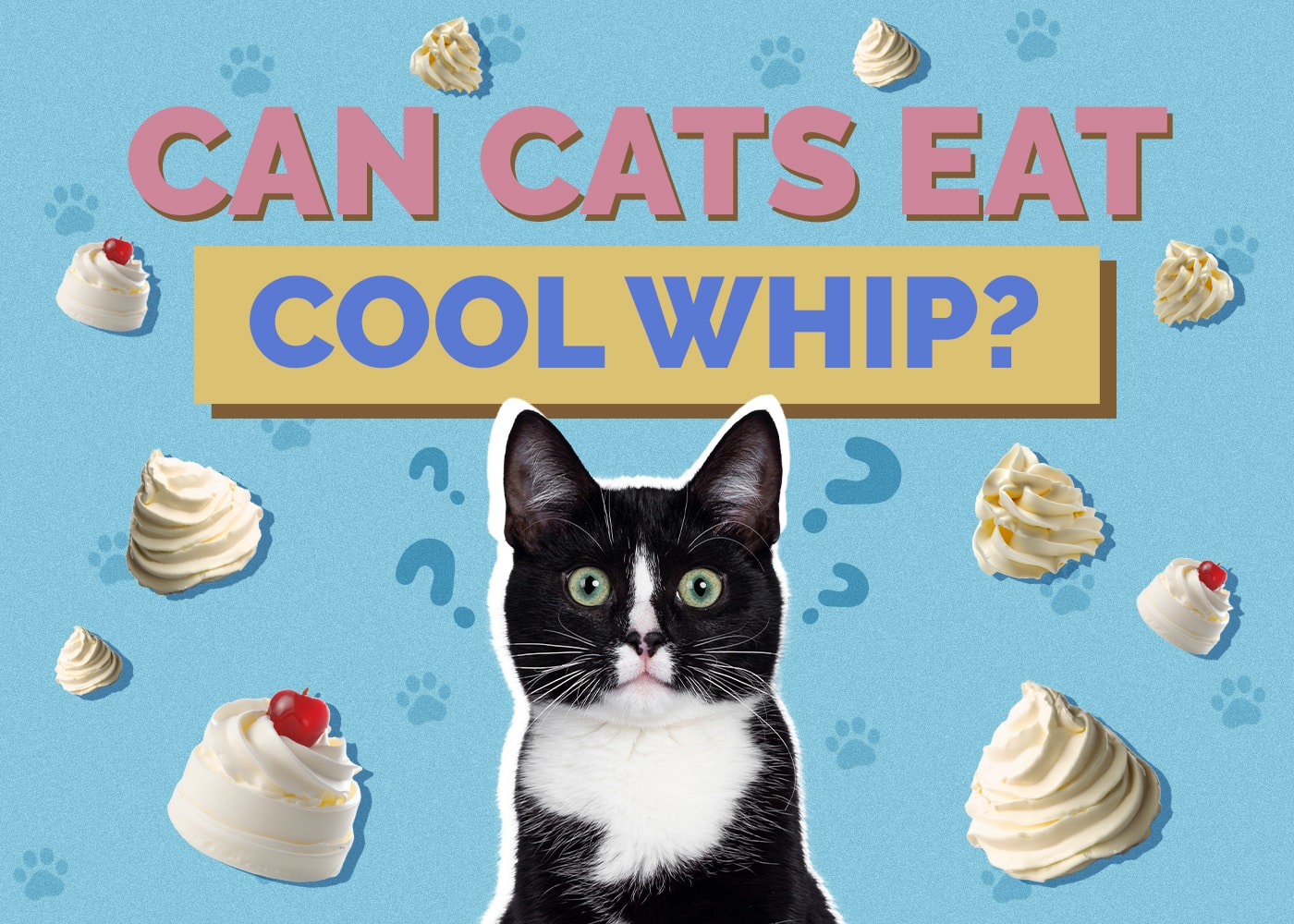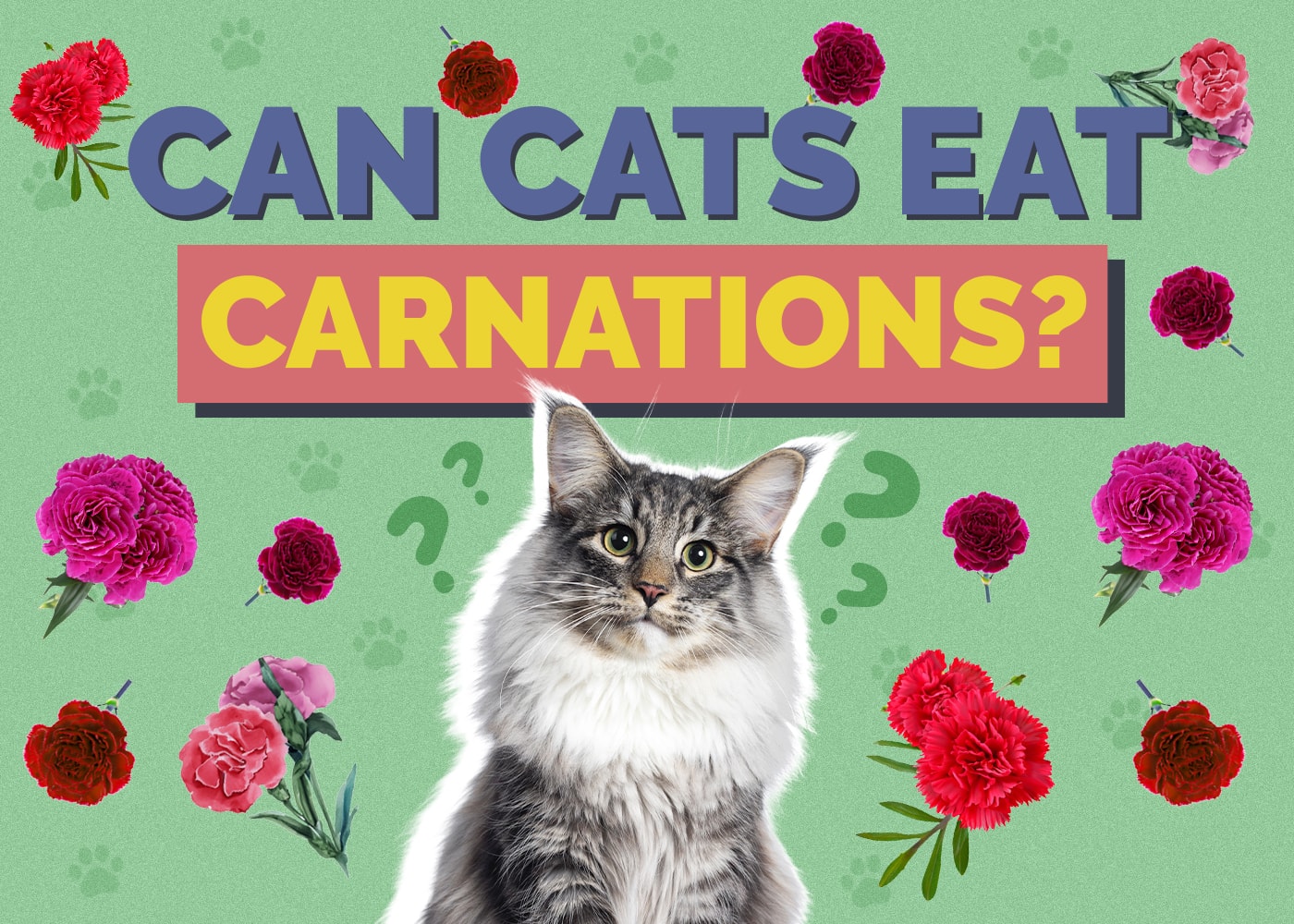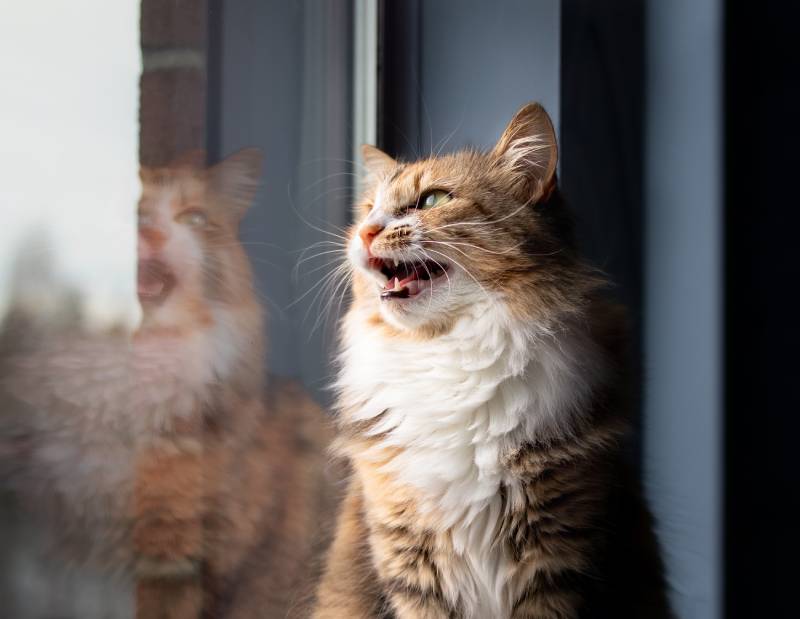Why Did My Cat Throw Up White Foam? 6 Vet-Reviewed Causes

Updated on
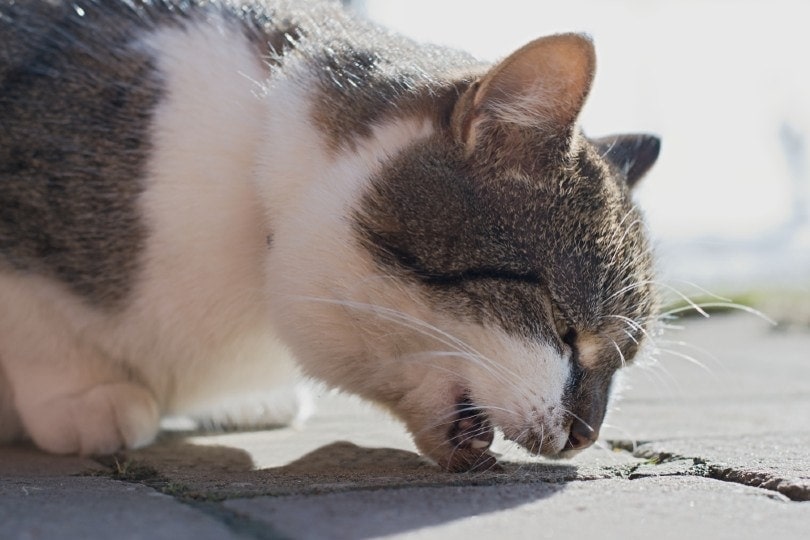
Owning a cat means dealing with the good times and the bad times, and those bad times can often involve bodily fluids. Cats get ill, just like we do, which can cause them to have diarrhea or vomit. But what if your cat vomits up white foam? Is this a serious issue? The main reason cats throw up white foam is that their stomachs are empty.
Read on to learn about why your cat may be throwing up white foam.
Why Is My Cat Throwing Up White Foam?
The reason why your cat is throwing up white foam is because of an empty stomach. If your cat has not eaten in a while but manages to vomit white foam, this is due to the fluids and mucus in the stomach. Since there is no food to vomit up, the result is a frothy, white foam.
Seeing your cat vomit white foam is not cause for immediate action. However, a symptom like vomiting usually doesn’t exist in isolation. Is your cat vomiting after meals or playtime? Is the vomiting chronic or after you’ve administered medication? Read on to find out some potential reasons for her vomiting and how you and your veterinarian can work together to solve the problem.
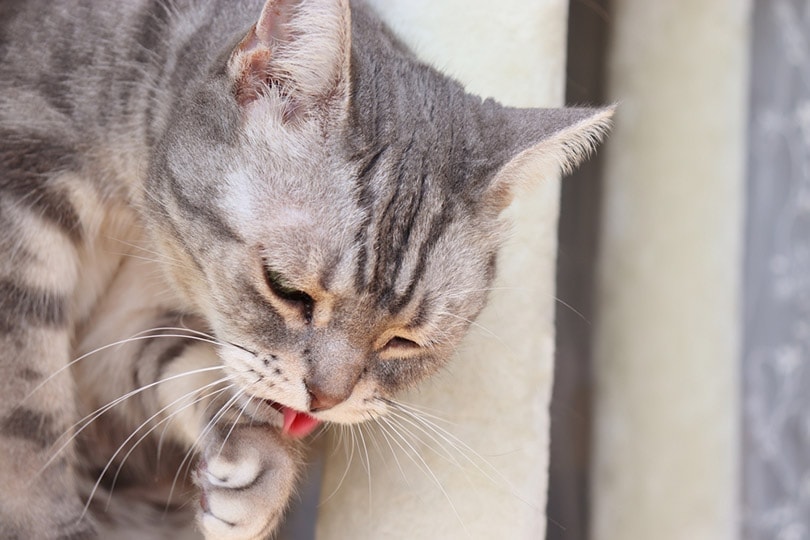
Top 6 Common Reasons Your Cat Vomits White Foam
Seeing your cat vomiting and not knowing why can be concerning. A few potential culprits cause feline vomiting, from hairballs to something more serious, like cancer.
1. Eating Things She Shouldn’t
If you have seen your cat eat food they shouldn’t (garbage, rotting carcasses, etc.) followed by vomiting up white foam, this could be the reason. If cats eat something that disagrees with them, they can experience vomiting. Human food, for example, could upset their digestive system, which is why you should avoid it in their diet. It’s possible your cat has developed an allergy to their food.
Another common cause of being sick is eating a foreign object like string, rubber bands, ribbons, or household poisonous substances, such as antifreeze, toxic plants or flowers, or human medications.
2. Consuming Milk
Cats can be lactose intolerant, so it turns out that cute movie-perfect moment where your cat drinks from a saucer of milk might not be too good for her. Like most mammals, cats drink milk when they’re young.
When they’re young, they have plenty of the enzyme lactase, which digests lactose (a milk sugar), but as they grow, they produce less lactase, which means your cat can’t digest milk like she once could—especially milk from another animal.
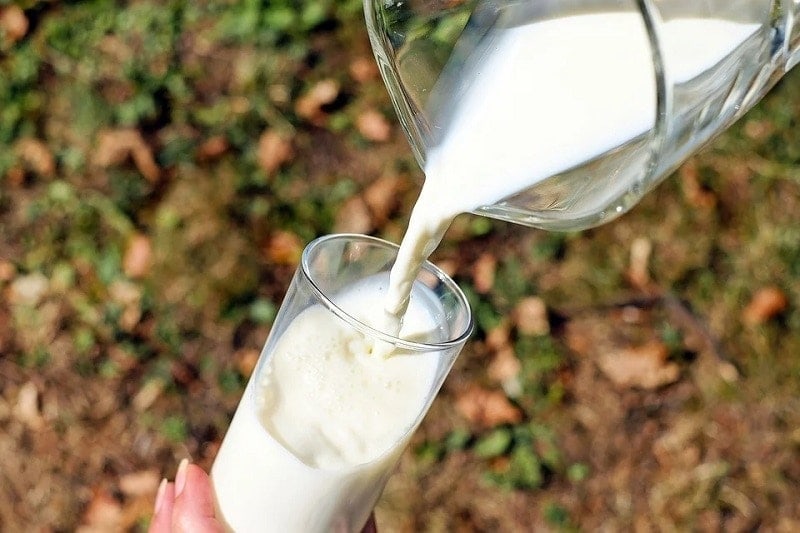
3. Timing of Meals
An adult cat is usually fed one or two times a day. If you’ve created a pattern by feeding her at specific times and you feed her late or not at all one day, this could upset her stomach.
Prior to eating, a cat’s stomach readies itself by releasing gastric juices, hydrochloric acid, and bile used to digest her meal. An hour after her usual mealtime, if she hasn’t been fed, the acid may irritate her stomach, and she may vomit to rid her body of this acid build-up.
4. The Cat Has Eaten Too Fast
This is one of the most common reasons that a cat will throw up. The time taken for food to go from being swallowed, traveling down the esophagus and into the stomach is about 10-20 seconds. If your cat is eating very quickly, the esophagus may fill up before the food has time to go into the stomach, and so it is regurgitated.
Of course, this doesn’t mean she won’t gobble her food. If she’s excited or feels like she has competition (there are other cats around), she’ll eat quickly. You can try and keep her calm after mealtimes by limiting playtime or changing up the routine so you feed her smaller portions more often throughout the day.
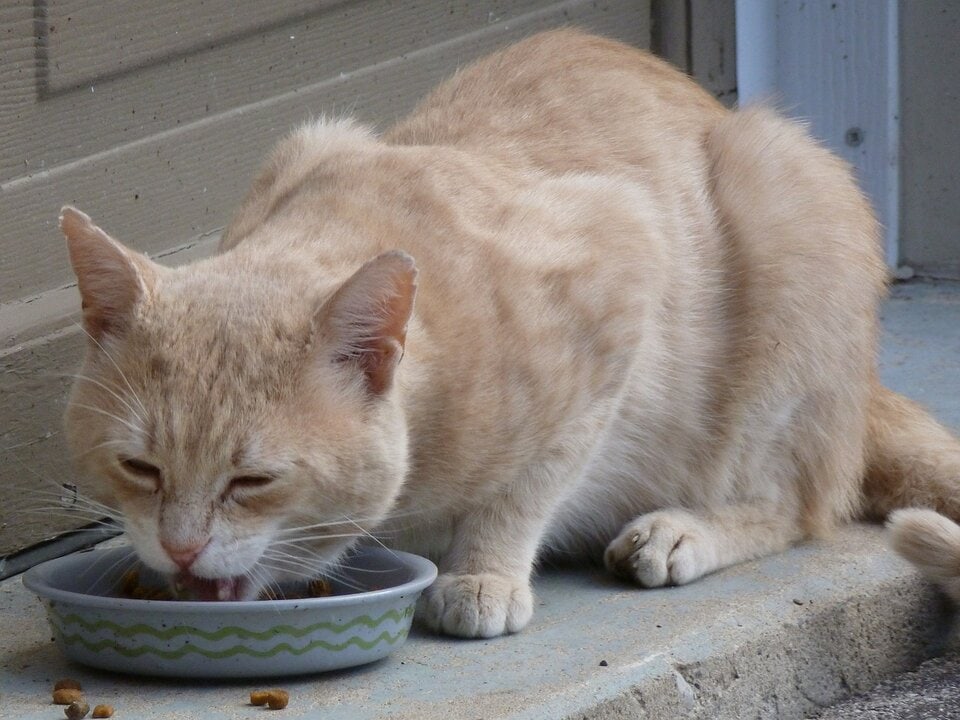
5. There’s an Underlying Health Condition
Chronic vomiting might be a symptom of something deeper. Examples of these are:
- Gastrointestinal infection (bacterial, parasitic, or viral)
- Problems with the pancreas, kidney, or liver
- Diabetes, hepatic insufficiency, and hyperthyroidism
- Inflammatory bowel disease
- Intestinal cancer
- Heartworm disease
- Hairballs
- Heatstroke
- Hairball obstruction
If you have ruled out other options, contact your veterinarian about what could be causing your cat to be sick so often.
6. Medicine
If you’ve noticed your cat vomiting white foam after medicine, it could be down to taste, stress, or “dry pilling” (swallowing a pill without liquid), which causes pills to get stuck in a cat’s esophagus. Capsules are even more dangerous because their gelatinous surfaces can cause them to lodge in the esophagus. To solve this problem, you could follow the pill with liquid or a treat or conceal the pill in food.
Final Thoughts
When it comes to your cat vomiting, pay close attention to what could be causing it. It could be that it’s something within your control. If it’s because of hairballs, you can lessen this risk by regularly brushing her fur. If it’s because she’s eaten a foreign object, speak to your vet about how to change this behavior.
Sometimes preventative measures now could save you a lot of worries later; keep harmful human food and substances in safe places where a nosy or bored cat can’t get to them. It can be worrying trying to figure out what is bothering your cat. If your cat suffers from chronic vomiting, or you can’t figure out what’s causing an unusual occurrence of vomiting, speak to your vet for some advice and reassurance.
- Related Read: Why Did My Cat Throw Up Clear Liquid? 7 Possible Reasons
Featured Image Credit: Tunatura, Shutterstock


